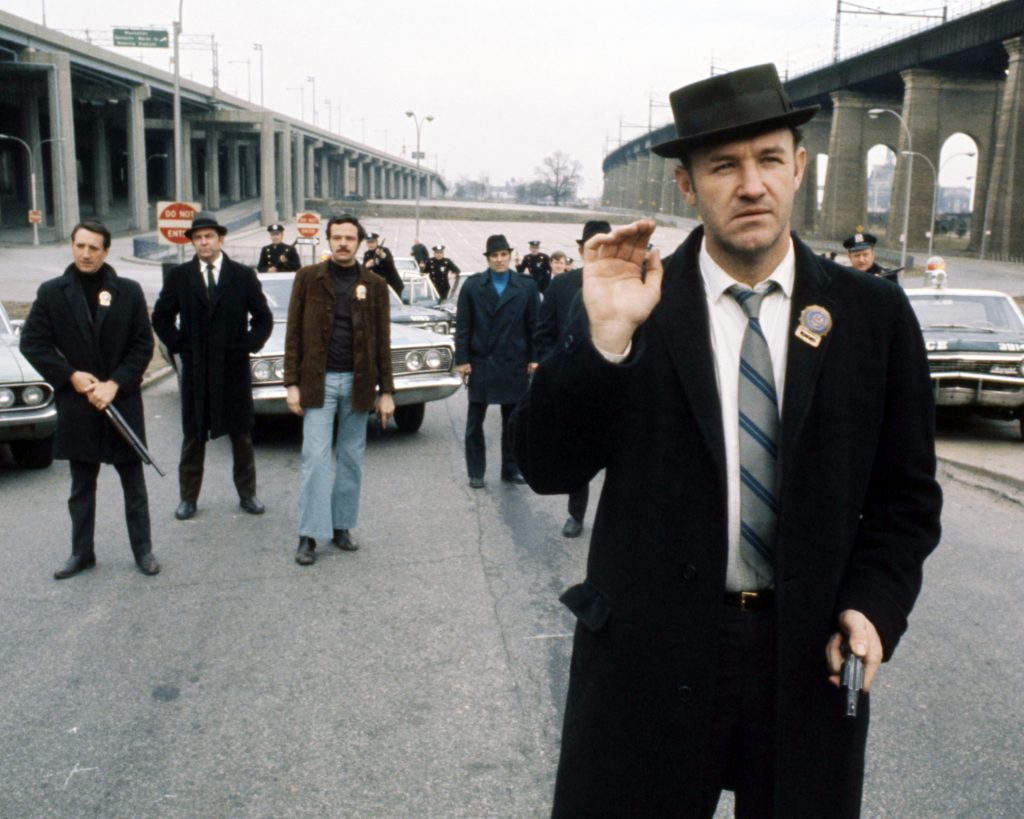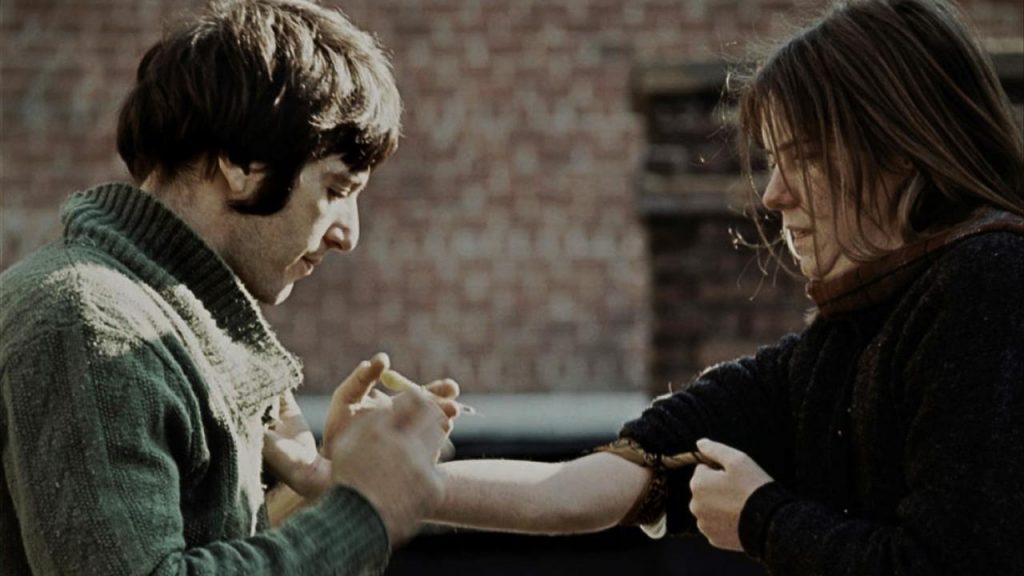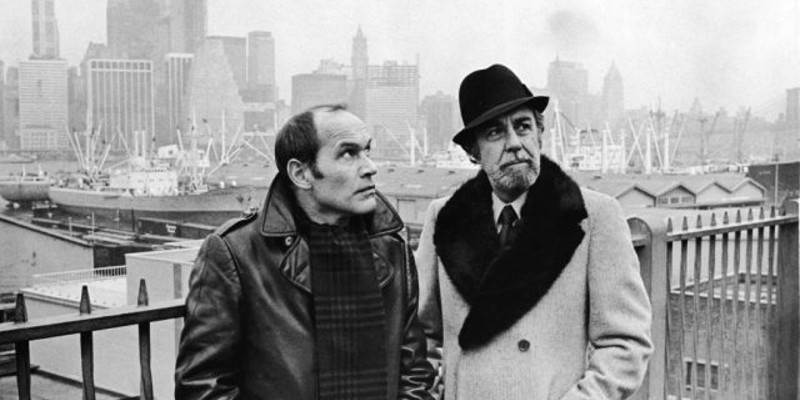Search
-
Recent Posts
- Dishing up Pulp Curry in a new way: why I am starting a Substack newsletter
- Book reviews: Deadly dames, midcentury Brit pulp and 1970s science fiction
- Mackenna’s Gold (1969): Gold, Ghosts and Frontier Violence
- Orphan Road book launch
- Orphan Road now available
- Pre-orders open for my new novel, Orphan Road
- Cover reveal: Orphan Road, my follow up to Gunshine State
- Breakfast in the Ruins podcast: New English Library Bikermania
- Why 1973 was the year Sidney Lumet took on police corruption
- Men’s Adventure Quarterly: Gang Girls issue
Categories
- 1960s American crime films
- 1970s American crime films
- 1980s American crime films
- 1990s American crime films
- Adrian McKinty
- Albert Dekker
- Andre De Toth
- Angela Savage
- Angie Dickinson
- Anthony Zerbe
- Asian noir
- Australian crime fiction
- Australian crime film
- Australian noir
- Australian popular culture
- Australian pulp fiction
- Australian television history
- Ava Gardner
- Beat culture
- Belmont Tower Books
- Ben Wheatley
- Billie Whitelaw
- Black pulp fiction
- Blaxsploitation
- Book cover design
- Book Reviews
- British crime cinema
- British pulp fiction
- Bryan Brown
- Burt Lancaster
- Carter Brown
- Charles Durning
- Charles Willeford
- Chester Himes
- Christopher G Moore
- Christopher Lee
- Cinema culture
- Claude Atkins
- Coronet Books
- Crawford Productions
- Crime Factory
- Crime Factory Publications
- Crime fiction
- Crime fiction and film from Africa
- Crime fiction and film from Cambodia
- Crime fiction and film from China
- Crime fiction and film from India
- Crime fiction and film from Indonesia
- Crime fiction and film from Japan
- Crime fiction and film from Laos
- Crime fiction and film from Latin and Central America
- Crime fiction and film from Malaysia
- Crime fiction and film from New Zealand
- Crime fiction and film from Scandinavia
- Crime fiction and film from Singapore
- Crime fiction and film from South Korea
- Crime fiction and film from Thailand
- Crime fiction and film from the Philippines
- Crime Fiction and film set in Vietnam
- Crime film
- Dangerous Visions and New Worlds Radical Science Fiction 1950 to 1985
- David Goodis
- David Peace
- David Whish-Wilson
- Derek Raymond
- Diana Dors
- Dirk Bogarde
- Don Siegel
- Don Winslow
- Donald Westlake aka Richard Stark
- Dystopian cinema
- Ernest Borgnine
- Eurocrime
- Fawcett Gold Medal Books
- Femme fatale
- Fernando Di Leo
- Filipino genre films
- Film Noir
- Forgotten Melbourne
- French cinema
- French crime fiction
- Garry Disher
- Gene Hackman
- George V Higgins
- Georges Simenon
- Ghost Money
- Giallo cinema
- Gil Brewer
- Girl Gangs, Biker Boys and Real Cool Cats: Pulp Fiction & Youth Culture, 1950-1980
- Gloria Grahame
- Gold Star Publications
- Gregory Peck
- Gunshine State
- Heist films
- Horror
- Horwitz Publications
- Humphrey Bogart
- Ian Fleming
- Interviews
- Ira Levin
- James Caan
- James Crumley
- James Ellroy
- James Hadley Chase
- James Woods
- Jim Brown
- Jim Thompson
- Joel Edgerton
- John Frankenheimer
- Joseph Losey
- Karen Black
- Kerry Greenwood
- Kinji Fukasaku
- Larry Kent
- Laura Elizabeth Woolett
- Lee Marvin
- Leigh Redhead
- Lindy Cameron
- M Emmet Walsh
- Mad Max
- Mafia
- Malla Nunn
- Martin Limon
- Megan Abbott
- Melbourne International Film Festival
- Melbourne Writers Festival
- Men's Adventure Magazines
- Michael Caine
- Michael Fassbender
- Mickey Spillane
- Monarch Books
- Ned Kelly Awards
- Neo Noir
- New English Library
- Newton Thornburg
- Noir Con
- Noir fiction
- Non-crime reviews
- Oren Moverman
- Orphan Road
- Ozsploitation
- Pan Books
- Parker
- Paul Newman
- Peter Boyle
- Peter Corris
- Peter Strickland
- Peter Yates
- Poliziotteschi
- Pulp fiction
- Pulp fiction in the 70s and 80s
- Pulp fiction set in Asia
- Pulp Friday
- Pulp paperback cover art
- Qui Xiaolong
- Raymond Chandler
- Richard Burton
- Richard Conte
- Robert Aldrich
- Robert Mitchum
- Robert Ryan
- Robert Stone
- Rock Hudson
- Roger Smith
- Rollerball
- Rosaleen Norton
- Roy Scheider
- Rural noir
- Sam Levene
- Sam Peckinpah
- Samuel Fuller
- Science fiction and fantasy
- Scripts Publications
- Sidney Lumet
- Sidney Poitier
- Simon Harvester
- Snowtown
- Snubnose Press
- Spies
- Stanley Baker
- Sterling Hayden
- Steve McQueen
- Sticking it the the Man Revolution and Counter Culture in Pulp and Popular Fiction 1950 1980
- Stuart Rosenberg
- Tandem Books
- Tart noir
- Tartan Noir
- Ted Lewis
- Toni Johnson Woods
- True crime
- Vicki Hendricks
- Victor Mature
- Vintage mug shots
- Vintage pulp paperback covers
- Wallace Stroby
- War film
- Westerns
- William Friedkin
- Woody Strode
- Yakuza films
- Yaphet Kotto
Nothing but noir
Recommended reading
The lurid world of pulp
- 20th century Danny Boy
- American Pulps
- Bear Alley
- Bloody, Spicy, Books
- Comics Down Under
- Everything second hand
- Existential Ennui
- Greenleaf Classic Books
- Irv O. Neil's Erotica is My Trade
- Killer Covers
- Lost Classics of Teen Lit 1939-1989
- Luminist Archives
- Men's Pulp Mags
- Mporcius Fiction Log
- Murder, Mayhem and Long Dogs
- Neglected Books
- Nocturnal Revelries
- Paperback Warrior
- Paperbacks of the Gods
- Pop Sensation
- Pulp artists
- Pulp Covers
- Pulp Crazy
- Pulp Flakes
- Pulp International
- Pulp Magazines Project
- Pulp Serenade
- Realms of the Night
- Romance Fiction Has a History
- Rough Edges
- Sin Street Sleaze
- Spy Guys and Gals
- The department of Afro American Research Arts & Culture
- The Dusty Bookcase
- The Haunted World of Richard Sala
- The Moon Lens
- The Nick Carter & Carter Brown Blog
- The Pulp & Paperback Fiction Reader
- Too Much Horror Fiction
- True Pulp Fiction
- Vault of Horror
- Vintage Nurse Romance Novels
- Vintage Romance Novels
- Welcome to the Pan Paperback
- Yellow and Creased
Support This Site
If you like what I do please support me on Ko-fi
Category Archives: William Friedkin
Dishing up Pulp Curry in a new way: why I am starting a Substack newsletter

After much thought I have decided that to experiment with moving the focus of my blogging from this site to a new Pulp Curry Substack newsletter.
Why am I doing this?
The first post on this website appeared on July 2010 (about the incredibly underrated 1979 Australian heist film, Money Movers – you can read the post here). I’ve been writing on the site with varying frequency ever since (579 posts in all), and for the most part have enjoyed it immensely.
But for the last 12 or so months I just haven’t been feeling it – or getting the hits to make it seem worthwhile – and have started to wonder whether it’s worth continuing with the effort. Posting on a website has been starting to feel like the equivalent of trying to read a broadsheet newspaper in a crowded tram carriage, unwieldy and inconvenient.
And, thinking about it, I suspect the blog format is starting to get a bit stale for me and is actually now a brake on my posting more regularly.
I know that I’m no Robinson Crusoe in this regard. The majority of the blogs I used to follow have gradually fallen by the wayside, as people have moved on, grown weary of the effort, found other interests, adopted other means to get their message out, or, in some cases (gulp), died.… Read more
Posted in 1960s American crime films, 1970s American crime films, 1980s American crime films, 1990s American crime films, Adrian McKinty, Albert Dekker, Andre De Toth, Angela Savage, Angie Dickinson, Anthony Zerbe, Asian noir, Australian crime fiction, Australian crime film, Australian noir, Australian popular culture, Australian pulp fiction, Australian television history, Ava Gardner, Beat culture, Belmont Tower Books, Ben Wheatley, Billie Whitelaw, Black pulp fiction, Blaxsploitation, Book cover design, Book Reviews, British crime cinema, British pulp fiction, Bryan Brown, Burt Lancaster, Carter Brown, Charles Durning, Charles Willeford, Chester Himes, Christopher G Moore, Christopher Lee, Cinema culture, Claude Atkins, Coronet Books, Crawford Productions, Crime Factory, Crime Factory Publications, Crime fiction, Crime fiction and film from Africa, Crime fiction and film from Cambodia, Crime fiction and film from China, Crime fiction and film from India, Crime fiction and film from Indonesia, Crime fiction and film from Japan, Crime fiction and film from Laos, Crime fiction and film from Latin and Central America, Crime fiction and film from Malaysia, Crime fiction and film from New Zealand, Crime fiction and film from Scandinavia, Crime fiction and film from Singapore, Crime fiction and film from South Korea, Crime fiction and film from Thailand, Crime fiction and film from the Philippines, Crime Fiction and film set in Vietnam, Crime film, Dangerous Visions and New Worlds Radical Science Fiction 1950 to 1985, David Goodis, David Peace, David Whish-Wilson, Derek Raymond, Diana Dors, Dirk Bogarde, Don Siegel, Don Winslow, Donald Westlake aka Richard Stark, Dystopian cinema, Ernest Borgnine, Eurocrime, Fawcett Gold Medal Books, Femme fatale, Fernando Di Leo, Filipino genre films, Film Noir, Forgotten Melbourne, French cinema, French crime fiction, Garry Disher, Gene Hackman, George V Higgins, Georges Simenon, Ghost Money, Giallo cinema, Gil Brewer, Girl Gangs, Biker Boys and Real Cool Cats: Pulp Fiction & Youth Culture, 1950-1980, Gloria Grahame, Gold Star Publications, Gregory Peck, Gunshine State, Heist films, Horror, Horwitz Publications, Humphrey Bogart, Ian Fleming, Interviews, Ira Levin, James Caan, James Crumley, James Ellroy, James Hadley Chase, James Woods, Jim Brown, Jim Thompson, Joel Edgerton, John Frankenheimer, Joseph Losey, Karen Black, Kerry Greenwood, Kinji Fukasaku, Larry Kent, Lee Marvin, Leigh Redhead, Lindy Cameron, M Emmet Walsh, Mad Max, Mafia, Malla Nunn, Martin Limon, Megan Abbott, Melbourne International Film Festival, Melbourne Writers Festival, Men's Adventure Magazines, Michael Caine, Michael Fassbender, Mickey Spillane, Monarch Books, Ned Kelly Awards, Neo Noir, New English Library, Newton Thornburg, Noir Con, Noir fiction, Non-crime reviews, Oren Moverman, Orphan Road, Ozsploitation, Pan Books, Parker, Paul Newman, Peter Boyle, Peter Strickland, Peter Yates, Poliziotteschi, Pulp fiction, Pulp fiction in the 70s and 80s, Pulp fiction set in Asia, Pulp Friday, Pulp paperback cover art, Qui Xiaolong, Raymond Chandler, Richard Burton, Richard Conte, Robert Aldrich, Robert Mitchum, Robert Ryan, Robert Stone, Rock Hudson, Roger Smith, Rollerball, Rosaleen Norton, Roy Scheider, Rural noir, Sam Levene, Sam Peckinpah, Samuel Fuller, Science fiction and fantasy, Scripts Publications, Sidney Lumet, Sidney Poitier, Simon Harvester, Snowtown, Snubnose Press, Spies, Stanley Baker, Sterling Hayden, Steve McQueen, Sticking it the the Man Revolution and Counter Culture in Pulp and Popular Fiction 1950 1980, Stuart Rosenberg, Tandem Books, Tart noir, Tartan Noir, Ted Lewis, Toni Johnson Woods, True crime, Vicki Hendricks, Victor Mature, Vintage mug shots, Vintage pulp paperback covers, Wallace Stroby, War film, Westerns, William Friedkin, Woody Strode, Yakuza films, Yaphet Kotto
Book Review: We Are the Mutants – The Battle for Hollywood from Rosemary’s Baby to Lethal Weapon
Is there anything new left to say about the period of American film production from the late 1960s to the early 1980s?
This is the period that began with the so-called ‘New Hollywood’ and continued with its collapse under the weight of its own cinematic hubris and excess, bumped along considerably by the 1977 release of Star Wars, after which the blockbuster franchise, with its lucrative pre-sold merchandising deals, evolved into the majority of what now passes for the American film industry. Of course, this is just one facet of the story. Influencing this trajectory was Vietnam, the rise and fall of the counterculture, the election of Ronald Reagan and the rise of neoliberalism.
To say something different about all of this is a tough task. But it is is precisely the aim of We are the Mutants: The Battle for Hollywood from Rosemary’s Baby to Lethal Weapon. That the book largely succeeds in its mission is due to a quality I initially found hard to define until I hit on a way to do so by way of a comparison. The book reminds me of the work of British documentary maker Adam Curtis, particularly his most recent effort, I Can’t Get You Out of My Head: An Emotional History of the Modern World.… Read more
Posted in 1960s American crime films, 1970s American crime films, 1980s American crime films, Book Reviews, Cinema culture, Dystopian cinema, Horror, Ira Levin, Neo Noir, Non-crime reviews, Science fiction and fantasy, True crime, War film, William Friedkin
Tagged Adam Curtis, Alien (1979), Harlan County USA (1976), Kelly Roberts, Michael Grasso, Phase IV (1974), Rosemary's Baby (1968), Silent running (1972), Sorcerer (1977), The Texas Chainsaw Massacre (1974), We Are the Mutants, We Are the Mutants The Battle for Hollywood from Rosemary's Baby to Lethal Weapon, Wild in the Streets (1968)
Ten crime films about drug trafficking to see after The French Connection
In the process of researching and writing my latest piece for the CrimeReads site, on the real-life drug trafficking network that inspired William Friedkin’s ground-breaking 1971 crime film, The French Connection, I compiled a list of other movies directly or indirectly related to the film’s themes, the actual events that informed it, or that were influenced in some way by Friedkin’s classic. I didn’t have the space to include these details in my CrimeReads piece, but the list is below.
Panic in Needle Park (1971)
Around the same time that Popeye Doyle and Buddy Russo were pursuing Frog One through the winter streets of New York, The Panic in Needle Park was giving cinema goers a very different picture of the city’s heroin trade. Based on a 1966 novel and adapted for the screen by Joan Didion and John Gregory Dunn, Jerry Schatzberg’s film is an incredibly downbeat look at the trouble romance between two denizens of New York’s heroin scene, young addict, Helen, the very underrated Kitty Winn, and small-time dealer Bobby, played by Al Pacino. It has been a while since I’ve seen The Panic In Needle Park but from memory it depicts the full spectrum of drug scene related experiences, including police harassment, prostitution, and the chemical highs and lows of addiction.… Read more
Posted in 1960s American crime films, 1970s American crime films, 1980s American crime films, 1990s American crime films, Anthony Zerbe, Crime fiction and film from Thailand, Crime film, Gene Hackman, John Frankenheimer, Mafia, Poliziotteschi, Robert Stone, Sidney Lumet, Stuart Rosenberg, William Friedkin
Tagged Air America (1990), Dirty Harry (1971), Enzo G. Castellari, Fabio Testi, Gene Hackman, Hit (1973), Jerry Schatzberg, John Frankenheimer, Midnight Express (1978), Panic In Needle Park (1971), Prince of the City (1981), Roger Spottiswoode, The French Connection (1971), The French Connection II (1975), The Godfather (1972), The Heroin Busters (1977), Who'll Stop the Rain (1978), William Friedkin, Year of the Dragon (1985)
The real French Connection
My latest piece for the US site CrimeReads is a look at the real-life crimes that inspired William Friedkin’s 1971 classic, The French Connection. It is a tangled tale of Corsican gangsters, international heroin smuggling, the CIA and the war in Indochina – with a dash of my own experience in Laos. You can read the piece in full here.… Read more
Posted in 1960s American crime films, 1970s American crime films, 1980s American crime films, Asian noir, Crime fiction and film from Cambodia, Crime fiction and film from Thailand, Crime Fiction and film set in Vietnam, Crime film, Gene Hackman, Mafia, Roy Scheider, True crime, William Friedkin
Tagged 1970s American crime film, Gene Hackman, Roy Scheider, The French Connection (1971), William Friedkin
Projection Booth episode #495 :To Live and Die in L.A. (1985)

I am thrilled to be co-hosting another episode of Mike White’s film podcast, The Projection Booth, this one on William Friedkin’s 1985 neo noir, To Live and Die in L.A. The film pits Treasury agent William Petersen as Richard Chance against Willem Dafoe as artist and forger Rick Masters, and is based on the novel of the same name by former US federal agent turned crime writer, Gerald Petievich. Along with my fellow co-host, Jedidiah Ayres, we were joined by the film’s editor, M. Scott Smith, and one of the its stars, Willem Dafoe.
We dive deep into this film, discussing the breathtaking work of To Love and Die in L.A.’s cinematography Robbie Muller and how the Friedkin demands complete suspension of disbelief from his audience in some many respects of the story and gets it.
We we also talk about the Wang Chung soundtrack, Los Angeles on the screen, how the film embodies the deregulated economic and political policies of the Reagan era, and how it relates to Friedkin’s broader ouvre and other America crime cinema, particularly the other film based on a Petievich book, Boiling Point (1993) and the Michael Cimino effort also released in 1985, Year of the Dragon.
The entire episode is online for your listening pleasure here.… Read more
Posted in 1980s American crime films, 1990s American crime films, Crime fiction, Crime film, Heist films, Neo Noir, William Friedkin
Tagged Boiling Point (1993), Gerald Petievich, M. Scott Smith, Michael Cimino, Neo Noir, Robbie Muller, The Projection Booth podcast, To Live and Die in LA (1985), Wang Chung, Willem Dafoe, William Friedkin, Year of the Dragon (1985)























